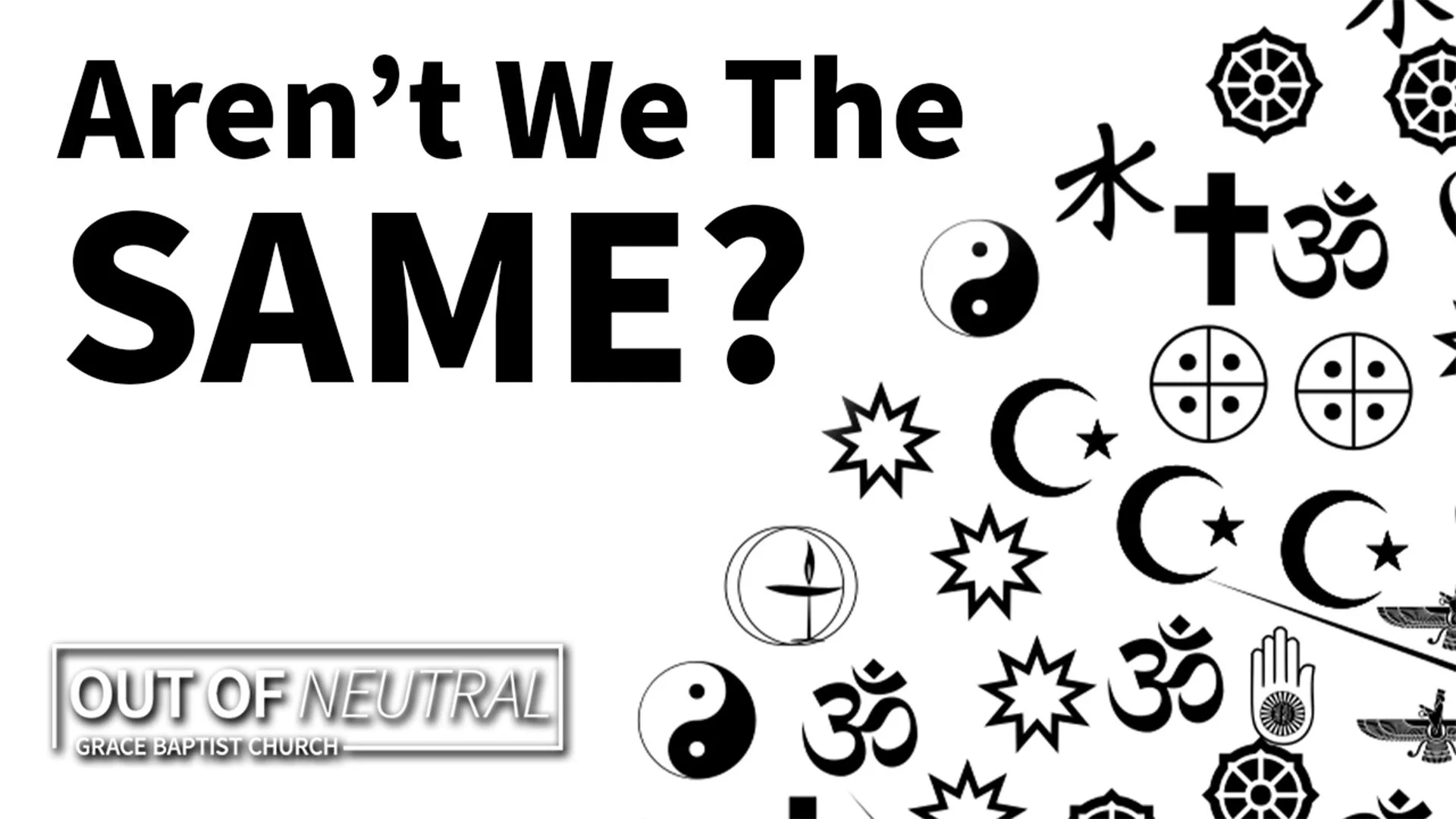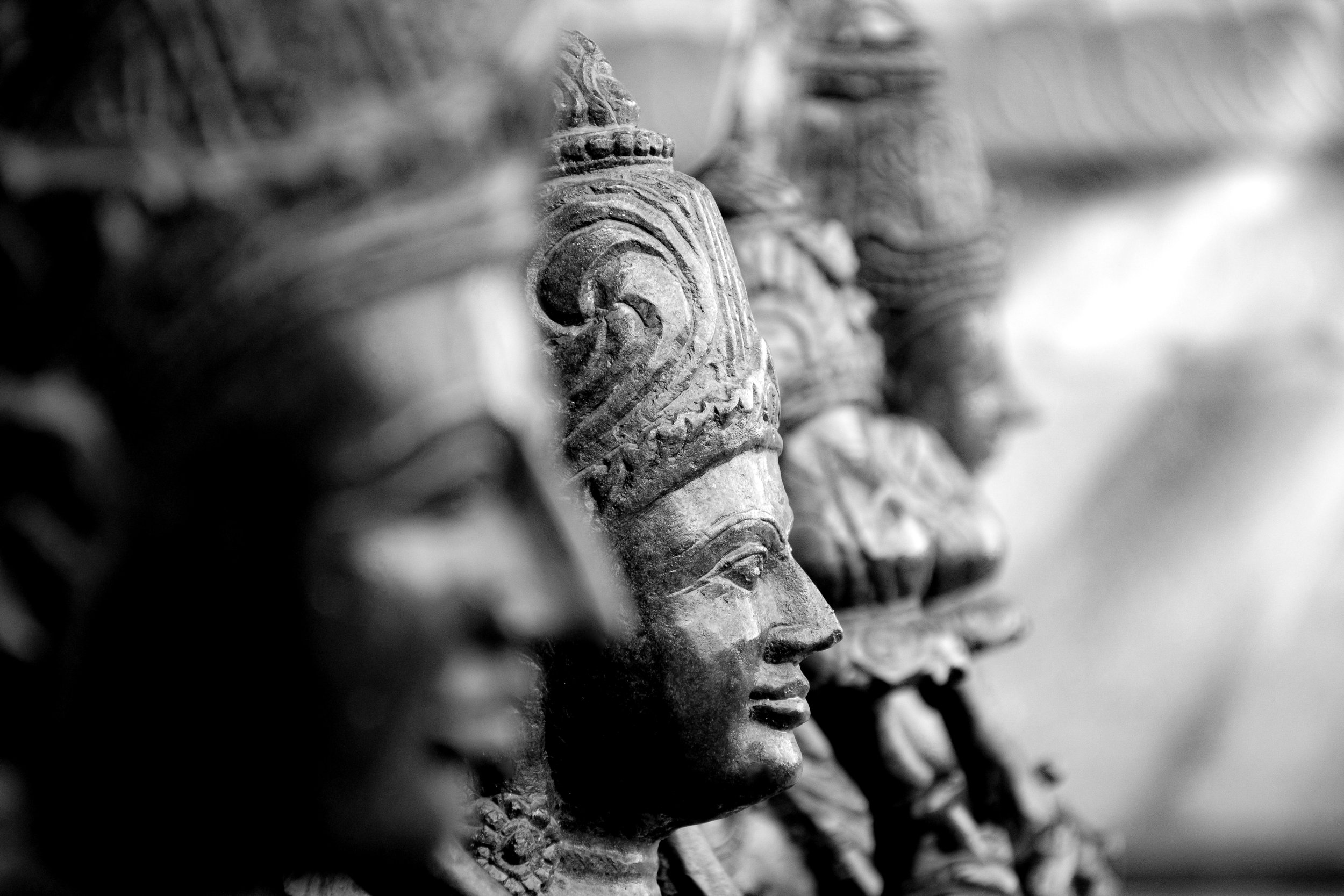Watch
Listen
Read
LifeWay Research released a report on people’s beliefs in society. What was clear was that although many people identify as Christians, their beliefs are often at odds with what the Bible teaches. As Bob Smietana summarized, “Americans love God and the Bible, [but] are fuzzy on the details.” I suspect the same could be said for Canadians. I’d like to look at this report and try to help clarify what the Bible does teach in these critical areas. I’ll start with worship.
In the survey, 64% of Americans affirmed the statement, “God accepts the worship of all religions, including Christianity, Judaism and Islam.” At first, you might think that’s just how the non-Christians responded, but 46% of people who identified as Evangelical Christians also agreed with the statement. You hear this thinking in many different forms today. People say, “We all worship the same God,” or “People are just using different names to talk about the same thing.” I’ve talked about my journey in this area in the article, “Surely Jesus can’t be the only way …” Today, I’d like to look at how the Bible responds to the topic.
In the Ten Commandments, God laid out a series of ways that He desired people to respond to Him. The first four are about how He wants us to relate to God and the last six are about the way He wants us to relate to others. He makes it clear that His first priority is that people put no other gods before Him. The Second Commandment is that we not worship any image of Him. And the third is that we not misuse His name. What’s going on? Why does God get so uptight about things that our culture has deemed trivial?
In the First Commandment, God is warning about counterfeits, in the Second, He’s concerned about distortion, and in the Third, He’s urging us to treat the specifics of faith seriously. Let me explain.
1. God wants to protect us from counterfeits
If there were a dozen gods, there wouldn’t be an issue, but God makes it clear that there is only one. In Isaiah 44:6 He says, “I am the first and I am the last; besides me there is no god.” If we put our trust in someone claiming to be God when in fact they’re a counterfeit, it’s extremely dangerous. God wants to protect us from phonies. God is like a lifeguard on the beach trying to rescue swimmers. When He sees a bunch of people wearing lifeguard shirts who can’t swim, He’s concerned because He knows it will lead people to put their hope in the wrong place.
2. God wants us to avoid distortion in how we view Him
God warned about making images of Him and worshipping them because as soon as we try to picture God, our understanding of Him as the infinite, everywhere-present, all-powerful God is reduced to something tamer and more manageable – it distorts what He’s really like. It may seem like innocent religion to worship a ceramic frog (as people I’ve met have), but to picture God as a frog is to worship something completely foreign to who He really is. And again the problem is that the frog can’t save anyone. As Jonah 2:8 says, “Those who cling to worthless idols turn away from God's love for them.” God wants us to see Him for who He is because He is the only one with the power to save.
3. God wants us to treat the specifics of our faith seriously
It may seem strange that God would make a commandment about the use of His name. Didn’t He read Shakespeare’s, “A rose by any other name would smell as sweet”? If my name is Paul and someone decides to call me Diego what difference does it make? The difference is that the person is choosing to define me in their own terms, without any regard for me, my opinion, or reality. People do the same thing with God. There are countless religions around the world and people are developing new ones and new variations on old ones all the time. But according to the Bible, all but one is a man-made fabrication, stealing the concept of God and infusing it with a human agenda. God’s concerned about the details. He wants us to take His name seriously. As Acts 4:12 says, “And there is salvation in no one else, for there is no other name under heaven given among men by which we must be saved.”
When Mother’s Day comes around, most mothers aren’t impressed that their son or daughter is celebrating the concept of a mother – they want a phone call (or a visit or a present)! They’re not happy to hear that their child has started to call a neighbourhood woman “mother” either. And it’s not just selfish jealousy. For a child to call a stranger mother is to assign a level of trust and expectation that could be very dangerous for them. If that’s true for mothers, how much more so for God?
God doesn’t accept the worship of all religions because they’re not the same, because they distort His character and His plan, and because they give the hope of salvation but ultimately can’t provide it.
In awe of Him,
Paul
P. S. If this is new to you and you think it’s something you’d like to explore, I’ve written a free, 12-week course called The Unstuck Life that walks you through the essentials of Jesus’ teachings in daily, bite-sized messages that you can read or watch by video. To learn more, click on the image below.
















